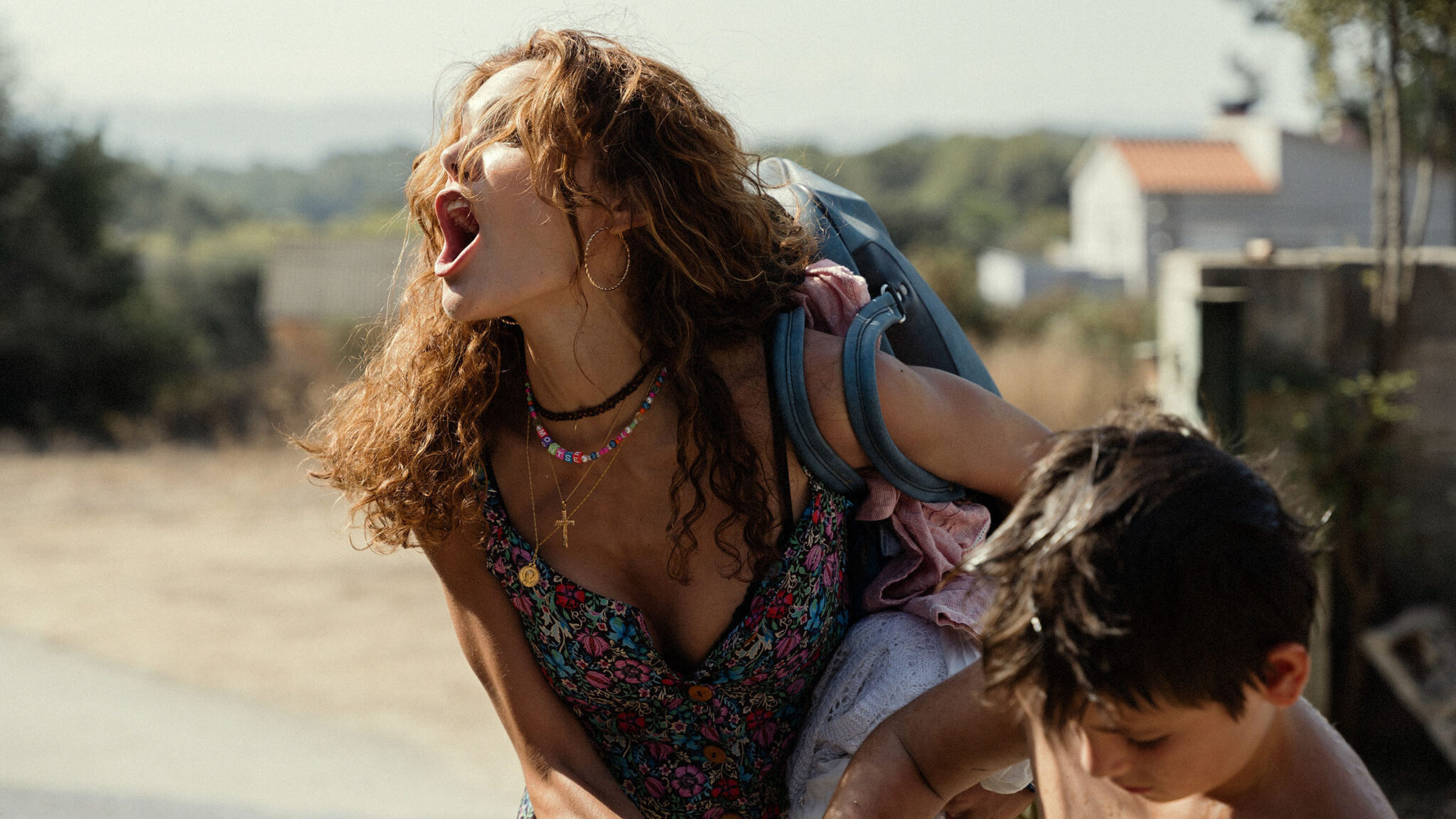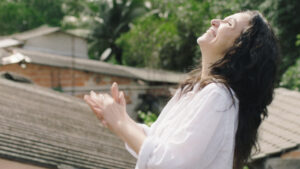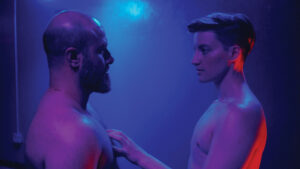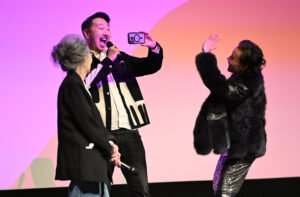By Lucy Spicer
One of the most exciting things about the Sundance Film Festival is having a front-row seat for the bright future of independent filmmaking. While we can learn a lot about the filmmakers from the 2024 Sundance Film Festival through the art that these storytellers share with us, there’s always more we can learn about them as people. This year, we decided to get to the bottom of those artistic wells with our ongoing series: Give Me the Backstory!
Collectively — and lovingly — known as “los Javis” in Spain, Javier Ambrossi and Javier Calvo are a formidable duo who began their individual creative journeys as actors before teaming up on the directorial front. “Outside of Spain, very few people know that our careers started as theater directors of an underground musical,” the pair explain. That musical, La llamada, was later made into a film, also written and directed by Ambrossi and Calvo. The duo’s multifaceted artistic backgrounds would go on to uniquely influence their work in television, including their recent series La Mesías, which may be their most ambitious to date.
Taking place over three decades, La Mesías follows siblings Enric and Irene as they look back at their cult-like upbringing and how the echoes of their trauma continue to reverberate years after the two have broken from their abusive mother. “Most of our efforts are focused on getting the truth in performances, and we put a lot of effort into making all interpretations excellent, from the lead actor to an extra,” explain Ambrossi and Calvo. “We have professional backgrounds as actors and acting teachers, and that helps us to experiment for the benefit of acting.” Audiences got a taste of the series at the 2024 Sundance Film Festival, where the first episode screened as part of the Episodic Pilot Showcase.
Learn more about los Javis and La Mesías below, including what the duo found most challenging about making the show and what advice they have for early-career storytellers.
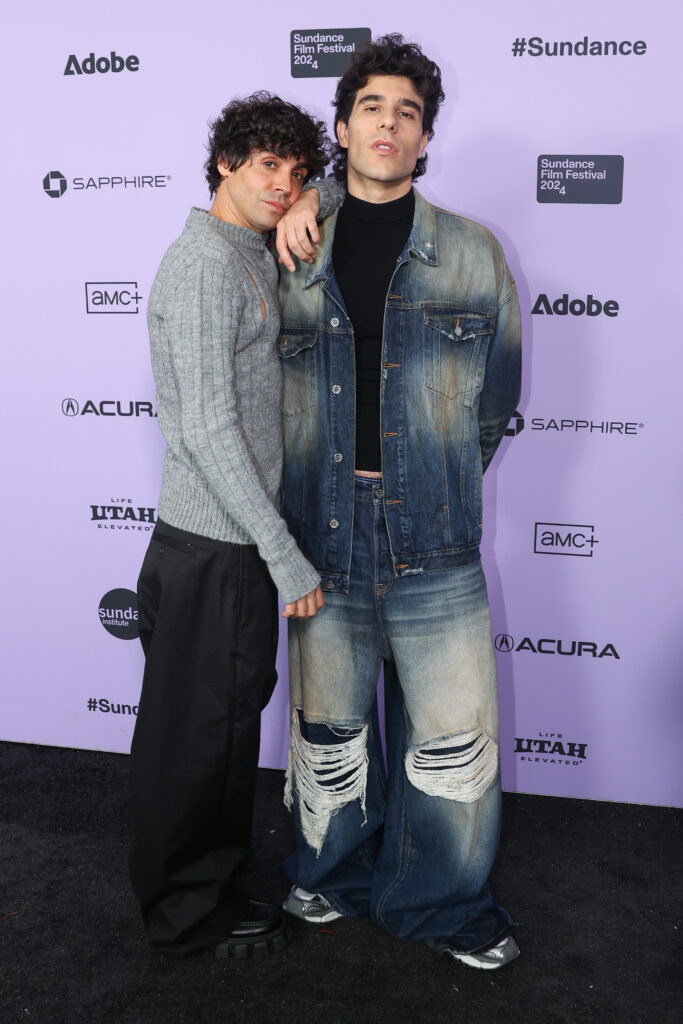
What was the biggest inspiration behind La Mesías?
We tell the story of La Mesías by jumping through time. In the present, we aim to showcase the creation of a cult, drawing inspiration from Paul Thomas Anderson’s The Master. We also want to make the audience reflect, so we lean into the multiple perspectives that enriched the narrative in The Leftovers.
In the past, there’s a story about unhealthy education and rural isolation and how the discovery of cinema becomes a salvation. We take cues from films like Alice Rohrwacher’s Le meraviglie, Víctor Erice’s El espíritu de la colmena, Yorgos Lanthimos’ Dogtooth, and Deniz Gamze Ergüven’s Mustang.
Describe who you want this series to reach.
We don’t really think about the audience our projects are meant for; we just create things that excite us, and these stories naturally find an audience that appreciates them.
Why does this story need to be told now?
We did feel that now is a good time to discuss the importance of education and the lifelong consequences of a traumatic childhood.
How do you want people to feel after they watch La Mesías?
This is a series that hurts and can be painful at times, but we don’t enjoy movies and shows that are just pure entertainment. We believe in cinema and series as art, and art should stir you up and make you feel.
Your favorite part of making the series? Memories from the process?
Filming is the time when we are the happiest. Writing is a complicated and solitary process, but shooting is a collective journey where we suffer while enjoying and enjoy while suffering to capture in images what we’ve been thinking, designing, and dreaming about for so long.
What was a big challenge you faced while making La Mesías?
When working with children, we wanted them to be able to express both the anguish and the day-to-day aspects of their characters. To achieve this, we wanted them to act without a script and encouraged them to freely develop their characters. This led to the extreme naturalness in their performances.
Why is filmmaking important to you? Why is it important to the world?
Creation is the engine that keeps us alive. Often, creation is also the best form of politics. You can change someone’s mind through emotion.
What is something that all filmmakers should keep in mind in order to become better cinematic storytellers?
Discover what moves you, and start creating from that. Never betray yourself, and never create for an algorithm. Your first audience should always be yourself.
What do you always have in your refrigerator?
Lemons for Javier Calvo’s Murcian roots, plant-based milk for morning coffee, something sweet before bedtime, and frozen broth from Javier Calvo’s mother because it always comes in handy.
What’s your favorite film that has come from the Sundance Institute or Festival?
Javier Ambrossi: The Virgin Suicides
Javier Calvo: Hedwig and the Angry Inch




